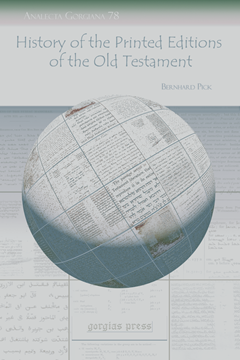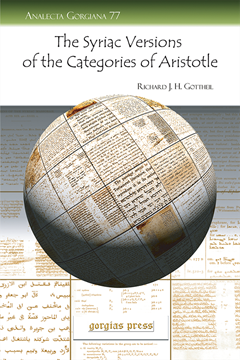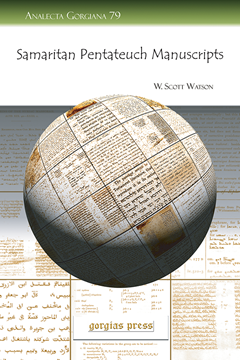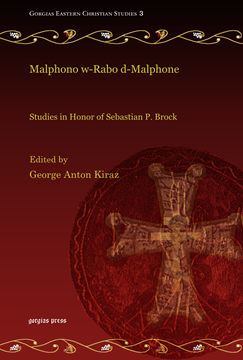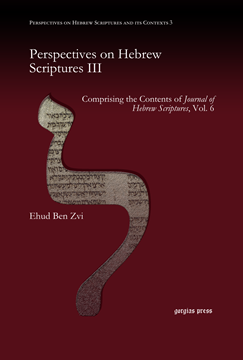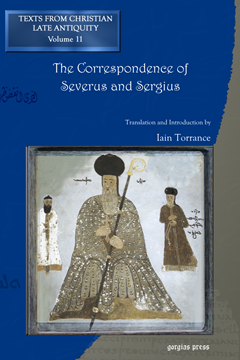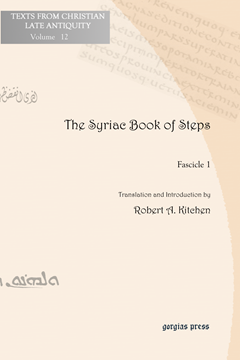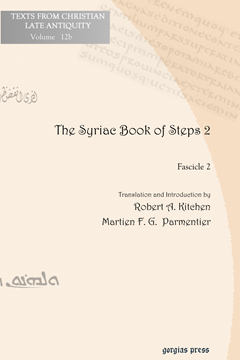The Songs of the Return (Psalms 120-134)
A Critical Commentary with Historical Introduction, Translation and Indexes
Series: Analecta Gorgiana 76
ISBN: 978-1-59333-890-9
Appended to this thesis is a short work, which stood in place of a proposed work on the precise topic of Stevens’ thesis. The shorter piece, by Professor Paul Haupt focuses specifically on Psalm 130.
$70.00 (USD) $42.00 (USD)
History of the Printed Editions of the Old Testament
Series: Analecta Gorgiana 78
ISBN: 978-1-59333-891-6
Offering a comprehensive study of the history of the recensions of the Hebrew Bible down to the author’s day, this essay provides the reader with a veritable genealogy of the different versions of the Hebrew Scriptures.
$47.00 (USD) $28.20 (USD)
The Syriac Versions of the Categories of Aristotle
Series: Analecta Gorgiana 77
ISBN: 978-1-59333-852-7
The role of medieval Syriac scholars in the translation, and thus preservation, of classical literature cannot be underestimated. Gottheil provides all of the extant Syriac texts of the translation of Aristotle’s Categories, and a brief introduction.
$42.00 (USD) $25.20 (USD)
Samaritan Pentateuch Manuscripts
Two First-Hand Accounts
Series: Analecta Gorgiana 79
ISBN: 978-1-59333-892-3
The three essays in this volume address the physical, historical and literary features of what were at the time two of the very earliest clearly datable manuscripts of the Pentateuch known to exist.
$43.00 (USD) $25.80 (USD)
Malphono w-Rabo d-Malphone
Studies in Honor of Sebastian P. Brock
Edited by George Anton Kiraz
Series: Gorgias Eastern Christian Studies 3
ISBN: 978-1-59333-706-3
A substantial Festschrift for Sebastian P. Brock, this volume contains 34 essays from a variety of scholars across the field of Syriac studies. The breadth of the submissions illustrates the multiplicity of approaches taken in contemporary Syriac studies, and while no overall limitations were set for the contributions, a lively interest in Jacob of Serug remains evident. No scholar in this discipline will want to miss this important collection that represents the latest in serious exploration of the world of Eastern Christianity in Late Antiquity.
$305.00 (USD) $183.00 (USD)
Perspectives on Hebrew Scriptures III
Comprising the Contents of Journal of Hebrew Scriptures, Vol. 6
By Ehud Ben Zvi
ISBN: 978-1-59333-976-0
This volume incorporates all the articles and reviews published in Volume 6 (2006) of the Journal of Hebrew Scriptures.
$227.00 (USD) $136.20 (USD)
The Correspondence of Severus and Sergius
Translation and Introduction by Iain Torrance
Series: Texts from Christian Late Antiquity 11
ISBN: 978-1-59333-971-5
Severus of Antioch was the Patriarch of Antioch and a moderate Miaphysite. Sergius the Grammarian is a lesser-known figure, but the content of his letters demonstrates that he was a more extreme Miaphysite. The early 6th century correspondence between the two consists of a set of three letters apiece and an apology by Sergius. Made available in Syriac along with Torrance’s translation, these letters are an important part of the working out of concerns associated with the Council of Chalecedon.
$59.00 (USD) $35.40 (USD)
Jews in Psychology and the Psychology of Judaism
ISBN: 978-1-59333-969-2
Contributions by four of the seven major theoretical innovators in modern psychology, Sigmund Freud, Max Wertheimer, Abraham Maslow, and Noam Chomsky, are explored against the backdrop of their Jewish heritage. The psychological wisdom in Jewish religious practices and culture is highlighted as well, from a psychodynamic perspective.
$65.00 (USD) $39.00 (USD)
The Syriac Book of Steps 1
Syriac Text and English Translation
Translation and Introduction by Robert A. Kitchen & Martien F. G. Parmentier
Series: Texts from Christian Late Antiquity 12
ISBN: 978-1-59333-978-4
The Syriac Book of Steps collects 30 memre by an anonymous late 4th century author in Persia. It describes the struggle of an actual Christian community, not an idealized one, to live a life in the pursuit of perfection in the midst of a hostile culture. The author details the aspirations and standards of the two ranks of Christians prior to the advent of monasticism: the Upright—married people who work and perform acts of charity—and the Perfect who are celibate, do not work, but live a life of prayer, wandering through the region teaching and mediating conflicts.
$60.00 (USD) $36.00 (USD)
The Syriac Book of Steps 2
Syriac Text and English Translation
Translation and Introduction by Robert A. Kitchen & Martien F. G. Parmentier
Series: Texts from Christian Late Antiquity 12b
ISBN: 978-1-59333-980-7
The Syriac Book of Steps collects 30 memre by an anonymous late 4th century author in Persia. It describes the struggle of an actual Christian community, not an idealized one, to live a life in the pursuit of perfection in the midst of a hostile culture. The author details the aspirations and standards of the two ranks of Christians prior to the advent of monasticism: the Upright—married people who work and perform acts of charity—and the Perfect who are celibate, do not work, but live a life of prayer, wandering through the region teaching and mediating conflicts.
$61.00 (USD) $36.60 (USD)

